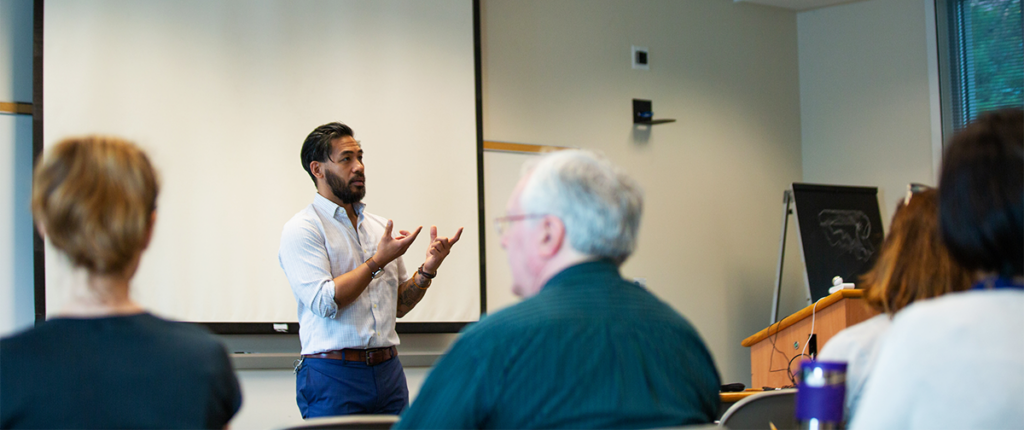GUMC Faculty Occupational Wellness Resources

Occupational wellness resources is about engaging in activities that enhance meaning and professional fulfillment, inspire professionalism and growth, and foster an environment of work-life integration.
Faculty Resources
For All
- Dependent Care Support for Faculty & Staff provides resources and programs for balancing the needs of family and work
- The GUMC Mentoring Program can enhance your mentoring network. Email gumcmentoring@georgetown.edu for a consultation to find what meets your mentoring needs
- Attend a virtual Faculty Development Committee meeting and learn about professional development initiatives and resources
- OFAA promotion planning worksheets and OFAA advancement workshops provide transparency on advancement requirements
- Teaching Communities from CNDLS allow you to engage with colleagues from across the University around issues of teaching and learning and explore new ideas and approaches to use in the classroom in book clubs, faculty cohorts and teaching circles.
- Faculty and Staff Assistance Program (FSAP): Georgetown University’s Faculty & Staff Assistance Program provides free, confidential counseling, consultation, and educational services to faculty, staff and their immediate family members. We can assist with a variety of personal and work-related concerns, including mental health issues, workplace conflict, relationship problems, parenting stress, and substance abuse.
- The Faculty Ombudsperson provides an informal, impartial, independent, and confidential environment for faculty members to discuss workplace issues, disputes, and discuss resolutions. Contact the current GUMC Faculty Ombudsperson, Dr. Bassem Haddad (haddadb1@georgetown.edu), to set up a meeting.
- Join the Cura Personalis Fellowship Program: This innovative Georgetown University School of Medicine teaching-learning program is an exciting opportunity for physicians to further develop their mentorship and facilitation skills, while engaging the longitudinal professional identity development of a cohort of 10 medical students as they progress throughout their undergraduate medical education. Please see the letter from Dean Jones and the Cura Personalis website for more detailed information.
- GU Professional Conduct website: Find resources about policies that guide professional conduct, ways to address unprofessional conduct and trainings for building a culture of professionalism. This information is not intended to conflict with, violate or supersede the Georgetown University Faculty Handbook, the Department of Human Resources Policy Manual, Georgetown University Medical Center’s Standards for Professional Behavior or the University’s Policy on Speech and Expression.
- CNDLS compiled information and research on how to best broach potentially difficult conversations and make them productive, positive learning experiences. Some of the topics and resources offered are around supporting student’s well-being, facilitating difficult discussions in the classroom, and being inclusive in the classroom.
For University-Employed Faculty Only
- Attend a Leave Options and Benefits for New Parents and Growing Families workshop or learn more about leave options in the Guide for New Parents and Growing Families.
For MedStar Health-Employed Faculty Only
- MedStar Center for Well-being: See the Care@Work Program (heavily subsidized child and adult care), concierge service, and other well-being initiatives available for MedStar employees.
General/Other Resources
- Faculty Hidden Handbook: This is a resource available through the institutional membership with the National Center for Faculty Development and Diversity (NCFDD). See instructions for how to access your institutional membership.
- Virtual Learning Resources: Explore LinkedIn Learning, FreeEDX Courses, Hybrid Workplace Tips
